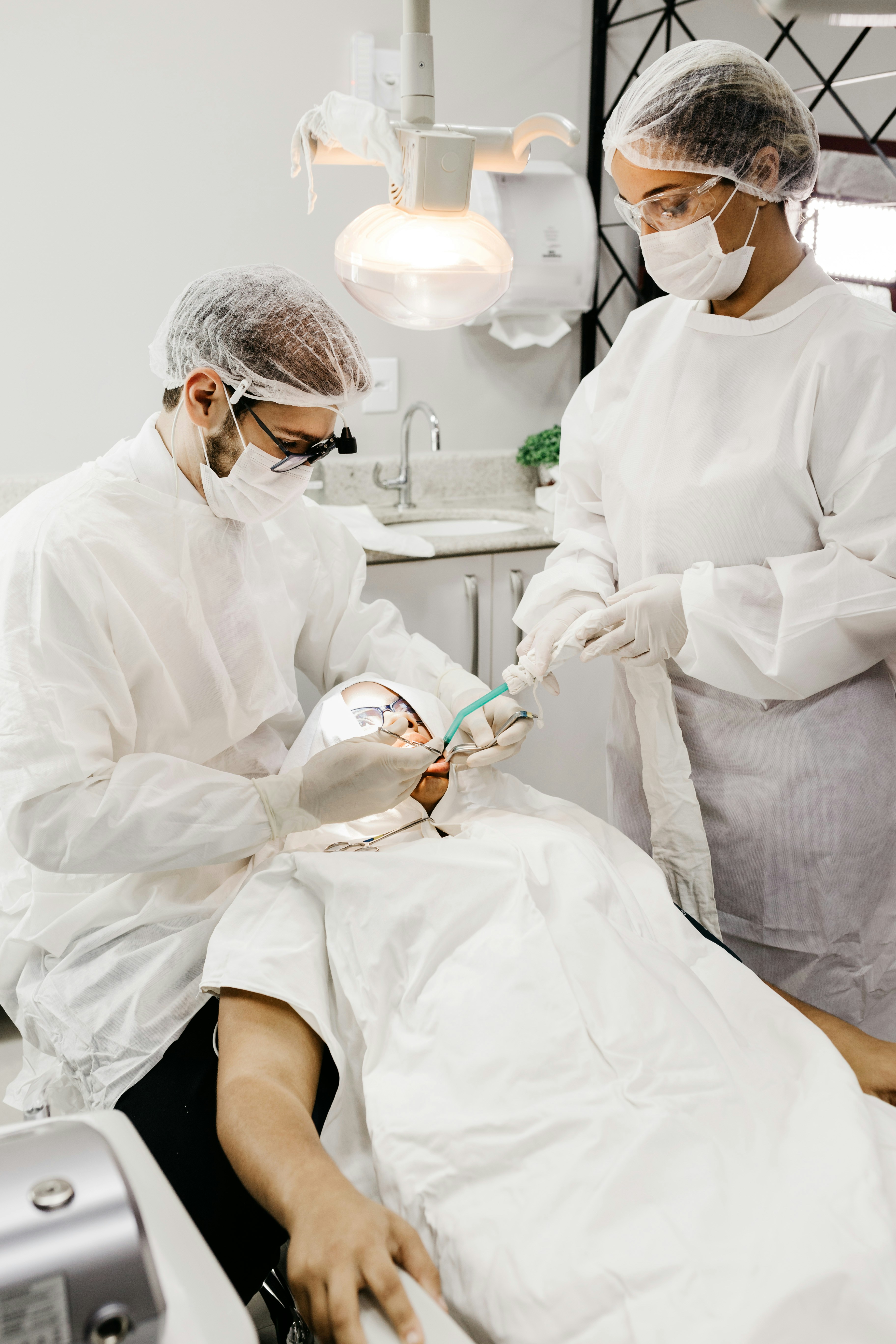Mouthguards are protective devices worn over the teeth and gums to shield against injury or damage during physical activities or from conditions like teeth grinding. These custom-fit or boil-and-bite appliances act as a barrier, absorbing and dispersing impact forces that could otherwise cause dental trauma, such as fractures, dislodgements, or soft tissue injuries. Mouthguards not only safeguard against sports-related injuries but also mitigate the effects of bruxism, reducing wear on tooth enamel and alleviating jaw discomfort. By providing a cushioning layer between the teeth and external forces, mouthguards serve as an essential preventive measure, preserving dental health, minimizing the need for extensive restorative treatments, and ensuring individuals can engage in their chosen activities with confidence and protection.
Tips for Maintaining Your Mouthguard
Rinse After Each Use
After wearing your mouthguard, rinse it thoroughly with cool water to remove saliva and debris. Avoid hot water, which can cause the mouthguard to warp or lose shape. Rinsing helps prevent the buildup of bacteria and odors, keeping your mouthguard fresh and clean.
Use a Mouthguard Case
Store your mouthguard in a clean, ventilated case to protect it from dirt, dust, and damage when not in use. Avoid placing it in a closed container or plastic bag, which can promote bacterial growth and unpleasant odors. A mouthguard case helps keep your mouthguard safe and hygienic between uses.
Avoid High Temperatures
Exposure to high temperatures can distort or damage your mouthguard. Avoid leaving it in direct sunlight, hot water, or near heat sources such as hair dryers or radiators. Store your mouthguard in a cool, dry place to maintain its shape and integrity.
Regularly Inspect for Damage
Periodically inspect your mouthguard for signs of wear, tear, or damage. Look for cracks, tears, or changes in shape that may affect its fit or effectiveness. If you notice any damage, replace your mouthguard promptly to ensure continued protection.
Replace as Needed
Over time, your mouthguard may become worn out or lose shape, compromising its ability to protect your teeth. Our dentist in Denver, CO, recommends replacing it as often as possible, typically every 6 to 12 months or sooner if signs of wear are evident.
Types of Mouthguards
Stock Mouthguards
Stock mouthguards are preformed and ready to wear right out of the package. They are typically made of rigid material and come in limited sizes. While stock mouthguards are readily available and inexpensive, they often provide a poor fit and minimal protection, as they cannot be customized to your mouth's unique shape.
Boil-and-Bite Mouthguards
Boil-and-bite mouthguards offer a better fit than stock mouthguards, which can be molded to your teeth and gums. To customize a boil-and-bite mouthguard, boil it in water to soften the material, then bite down on it to create a personalized fit. These mouthguards are more comfortable and provide superior protection than stock ones, making them a popular choice for athletes and individuals with bruxism.
Custom-Fit Mouthguards
Custom-fit mouthguards are professionally made by our dentist at Benson Orthodontics, using impressions of your teeth. These mouthguards offer the highest level of protection and comfort, as they are precisely tailored to fit your mouth. Custom-fit mouthguards provide an excellent fit, optimal retention, and superior shock absorption, making them ideal for athletes participating in high-impact sports and individuals with bruxism or jaw disorders.
The Importance of Mouthguards
Mouthguards in Denver, CO, play a crucial role in safeguarding dental health and preventing injuries during various physical activities. Whether engaging in sports or managing conditions like bruxism, these protective devices offer essential protection for the teeth, gums, and jaw. In sports, mouthguards are a vital defense against impact forces resulting in dental trauma, such as fractures, avulsions, or soft tissue injuries. By cushioning the teeth and dissipating the energy of impacts, mouthguards help reduce the risk of severe injuries and preserve oral health.
Moreover, mouthguards are invaluable for individuals who suffer from bruxism, a condition characterized by teeth grinding or clenching during sleep. Bruxism can lead to enamel wear, tooth fractures, and temporomandibular joint (TMJ) disorders, causing discomfort and compromising oral health. Mouthguards designed for bruxism act as a protective barrier, preventing direct contact between the upper and lower teeth and alleviating the harmful effects of grinding. By distributing forces and reducing pressure on the teeth and jaw, these mouthguards help relieve symptoms and minimize damage caused by bruxism. Contact us to explore various options for financing your treatments.
Furthermore, mouthguards are essential for athletes of all ages and skill levels, from recreational enthusiasts to professional competitors. In contact sports such as football, basketball, or hockey, the risk of dental injuries is inherent due to collisions, falls, or impacts from equipment. Without proper protection, athletes are vulnerable to traumatic injuries that can result in broken teeth, fractured jaws, or lacerations to the lips and gums. Mouthguards provide a simple yet effective solution to mitigate these risks, offering a protective barrier that absorbs and disperses impact forces, reducing the likelihood of dental emergencies and ensuring athletes can focus on their performance without fear of injury.
Invest in a custom mouthguard today to safeguard your teeth during sports or against teeth grinding. Visit Benson Orthodontics at 3200 East Cherry Creek South Drive, Suite #420, Denver, CO 80209, or call (303) 722-1202 to schedule an appointment and get fitted for your personalized mouthguard.
More Blog Posts
Visit Our Office
Denver, CO
3200 East Cherry Creek South Drive, Suite #420, Denver, CO 80209
Email: bensonortho@earthlink.net
Request An AppointmentOffice Hours
- MON8:00 am - 3:00 pm
- TUE8:00 am - 5:00 pm
- WED8:00 am - 4:00 pm
- THU8:00 am - 5:00 pm
- FRI - SUNClosed






